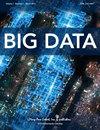A Scalable Semantic Framework for an Integrated Multi-Hazard Early Warning System
IF 2.6
4区 计算机科学
Q2 COMPUTER SCIENCE, INTERDISCIPLINARY APPLICATIONS
引用次数: 0
Abstract
The application of modern technologies in the environmental monitoring domain through the deployment of interconnected Internet of Things (loT) sensors, legacy systems, and enterprise networks has become an invaluable component of realising an efficient environmental monitoring system. Monitoring systems' requirements are extremely different depending on the environment, leading to ad-hoc implementations and integration of heterogeneous systems and applications. The resulting distributed systems lack flexibility with inherent issues such as data incompatibility, lack of data integration, and systems interoperability. Semantic representation of data is necessary to combine data from heterogeneous sources for consolidation into meaningful and valuable information and unlock the reusability of data between the monitoring systems. This research explores how a scalable semantic framework can ensure data representation using machine-readable languages for seamless data integration and interoperability of other heterogeneous sub-systems in a Multi-Hazard Early Warning System (MHEWS) as a case study. The study hypothesises that the challenge of ensuring data representation, data integration, and system interoperability within an MHEWS can be overcome through the application of semantic middleware.多灾种综合预警系统的可扩展语义框架
通过部署互联的物联网(loT)传感器、遗留系统和企业网络,现代技术在环境监测领域的应用已成为实现高效环境监测系统的宝贵组成部分。监视系统的需求根据环境的不同而有很大的不同,这导致了异构系统和应用程序的临时实现和集成。由此产生的分布式系统缺乏灵活性,存在诸如数据不兼容、缺乏数据集成和系统互操作性等固有问题。数据的语义表示对于将来自异构数据源的数据合并为有意义和有价值的信息以及解锁监控系统之间数据的可重用性是必要的。本研究以多灾种预警系统(MHEWS)为例,探讨了可扩展语义框架如何使用机器可读语言确保数据表示,以实现无缝数据集成和其他异构子系统的互操作性。该研究假设,在MHEWS中确保数据表示、数据集成和系统互操作性的挑战可以通过语义中间件的应用来克服。
本文章由计算机程序翻译,如有差异,请以英文原文为准。
求助全文
约1分钟内获得全文
求助全文
来源期刊

Big Data
COMPUTER SCIENCE, INTERDISCIPLINARY APPLICATIONS-COMPUTER SCIENCE, THEORY & METHODS
CiteScore
9.10
自引率
2.20%
发文量
60
期刊介绍:
Big Data is the leading peer-reviewed journal covering the challenges and opportunities in collecting, analyzing, and disseminating vast amounts of data. The Journal addresses questions surrounding this powerful and growing field of data science and facilitates the efforts of researchers, business managers, analysts, developers, data scientists, physicists, statisticians, infrastructure developers, academics, and policymakers to improve operations, profitability, and communications within their businesses and institutions.
Spanning a broad array of disciplines focusing on novel big data technologies, policies, and innovations, the Journal brings together the community to address current challenges and enforce effective efforts to organize, store, disseminate, protect, manipulate, and, most importantly, find the most effective strategies to make this incredible amount of information work to benefit society, industry, academia, and government.
Big Data coverage includes:
Big data industry standards,
New technologies being developed specifically for big data,
Data acquisition, cleaning, distribution, and best practices,
Data protection, privacy, and policy,
Business interests from research to product,
The changing role of business intelligence,
Visualization and design principles of big data infrastructures,
Physical interfaces and robotics,
Social networking advantages for Facebook, Twitter, Amazon, Google, etc,
Opportunities around big data and how companies can harness it to their advantage.
 求助内容:
求助内容: 应助结果提醒方式:
应助结果提醒方式:


